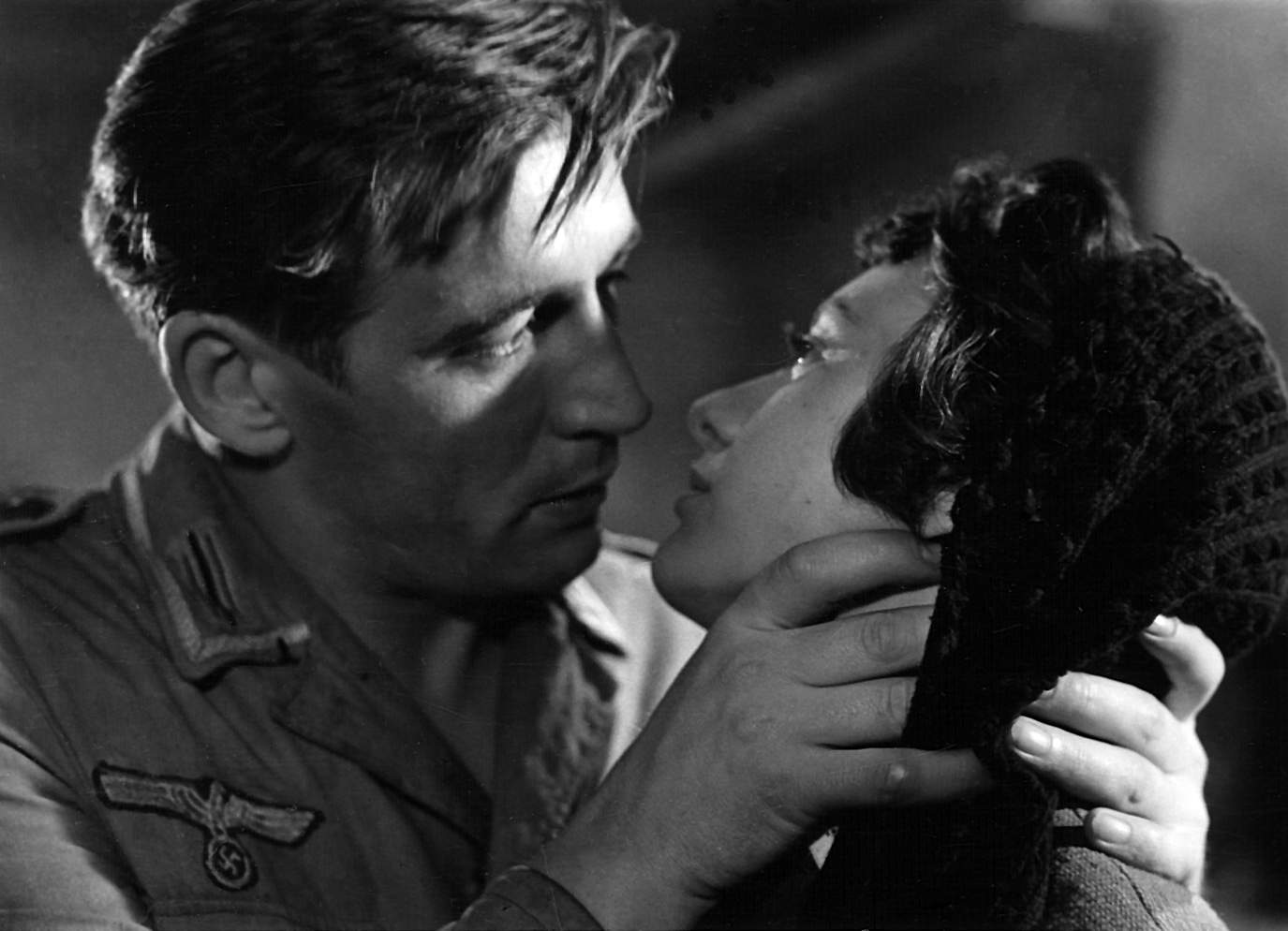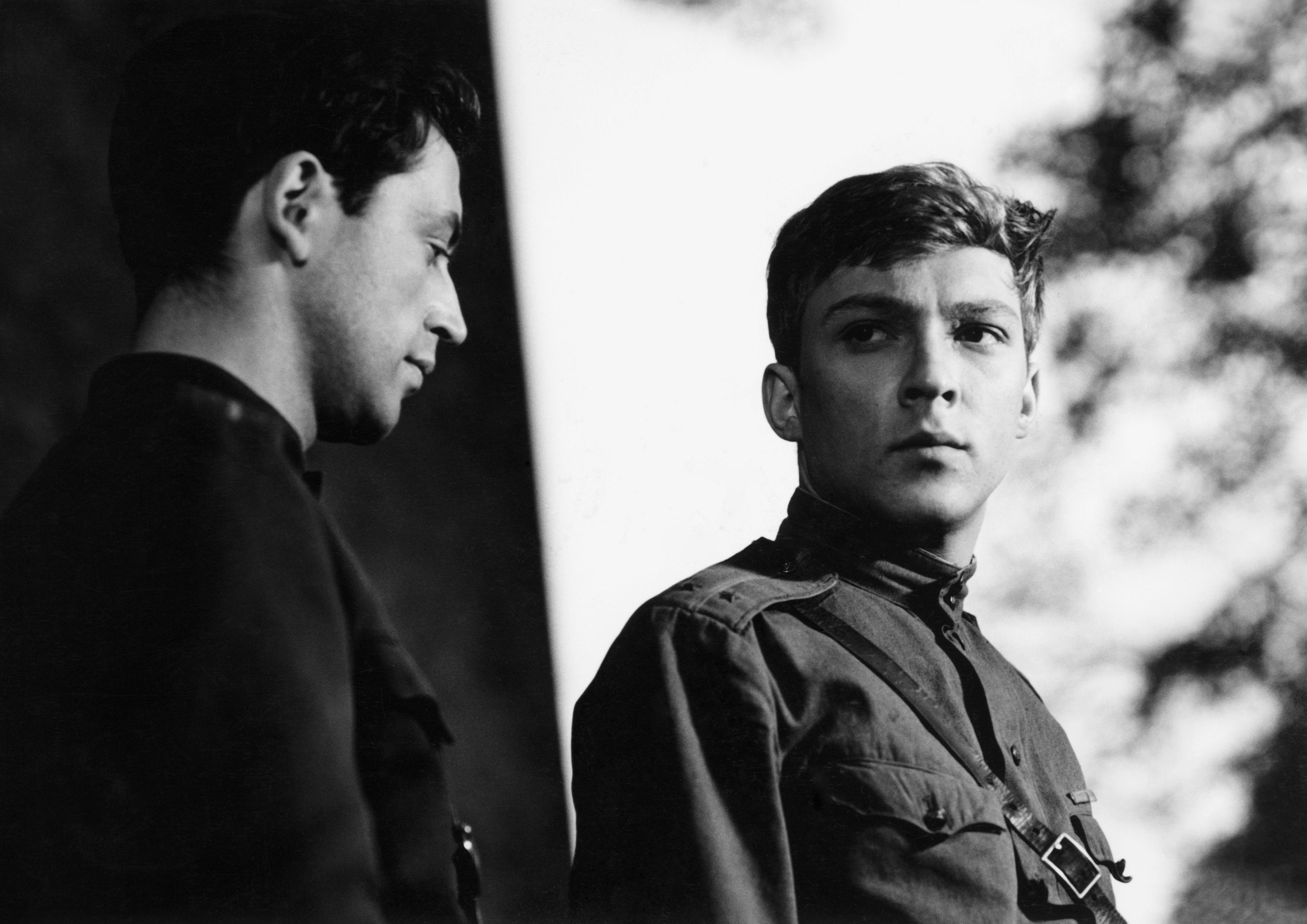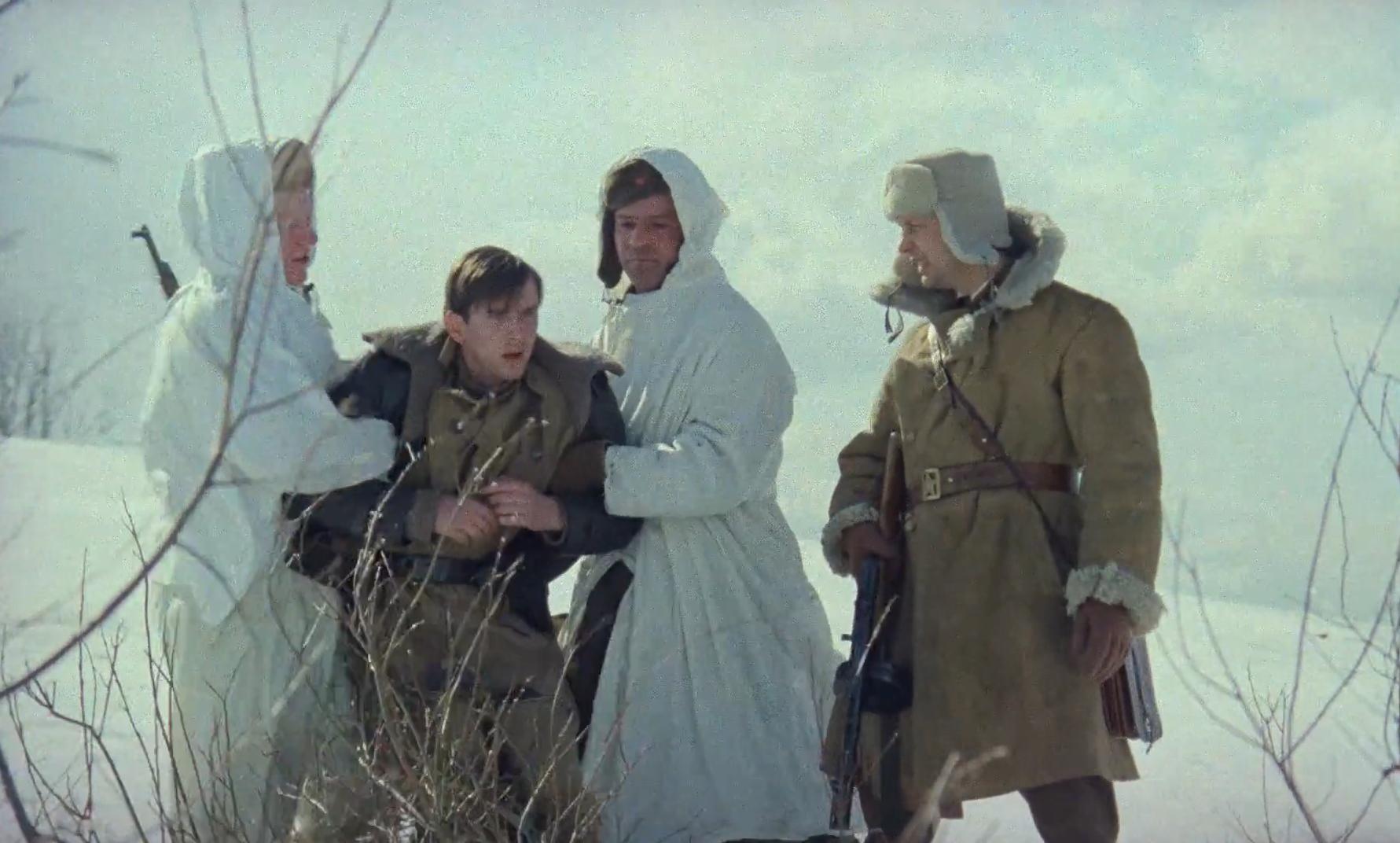Konrad Wolf on the Centennial
Presented in partnership with the Goethe-Institut Chicago. All prints courtesy of the DEFA Film Library
Doc and the Goethe-Institut present this selection of three films by Konrad Wolf on the 100th anniversary of his birth, with rare prints from the DEFA Film Library. These early films, whose concentration on World War II departs from his other works focused on Weimar or contemporary East German life, extend the Bildungsroman structure to the coming of age of an entire people, where the struggles of young people growing up in wartime come to stand in for all people's trajectory toward historical and class consciousness. Wolf's films attend to the conditions of "each person [who] must take the first steps on the often contradictory path in search of home, in discovering his place in the struggle for the only possible future of his people," in his own words. Wolf's young protagonists are at the same time deeply particular: his family, Jewish and communist, fled to the Soviet Union in the early 1930s, and quickly integrated into Moscow's German anti-fascist emigre community. At age 17, Wolf was drafted into the Red Army, later serving as part of the liberation of Sachsenhausen. This perspective on his country's history, as a German-in-exile fighting Germans from a foreign army, distinguishes him from other German filmmakers of the time, according to Marc Silberman. His anti-auteurist vision of a return to a truly collective filmmaking is similarly distinctive: here film is also an exercise in building a public. Teetering between documentary and fiction, pastiche and authenticity, oppositionality and the mainstream, an attachment to memory and a commitment to constructing a new future, the films of Konrad Wolf embody the contradictions that define East German cinema, cementing him as the "GDR figurehead and official cinematic representative," according to Thomas Elsaesser and Michael Wedel.
Sterne (1959)

Konrad Wolf · 92m · 16mm
An SS officer falls for a Greek Jewish woman in a transit camp in, according to Thomas Elsaesser, the first German film to confront the Holocaust head-on. Wolf subverts German melodrama tropes to problematize roles of victim and perpetrator in this adaptation of a screenplay by Angel Wagenstein, one of Wolf’s peers at VGIK in Moscow.
Tuesday, November 11 7:00 PM
Ich war neunzehn (1968)

Konrad Wolf · 115m · 16mm
Ich war neunzehn ("I was nineteen") tells the story of a young soldier who finds himself deeply alienated from his people and history as he returns to Germany as part of the Red Army. Partly adapted from Wolf’s own diaries, Wolf’s commemoration of the 50th anniversary of the October Revolution is a direct engagement with the war’s impact on a national sense of homeland and victimhood.
Introduced Danny Pinto, joint PhD candidate in the Departments of Germanic Studies and Cinema and Media Studies, accompanied by a post-screening lecture.
Tuesday, November 18 7:00 PM
Mama, ich lebe (1977)

Konrad Wolf · 103m · 35mm
Four Wehrmacht soldiers agree to work for the Red Army after their imprisonment in a Soviet prisoner-of-war camp. Wolf references and reworks earlier films (including Ich war neunzehn) in this tactful interrogation of national narratives of patriotism and accountability.
Introduced by Danny Pinto, joint PhD candidate in the Departments of Germanic Studies and Cinema and Media Studies.






